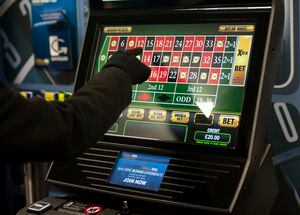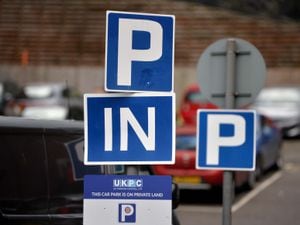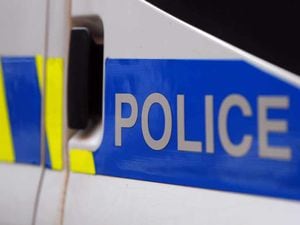The gambling machines draining wallets and communities in Shropshire
A former gambling addict who turned his life around to help others has spoken of betting shops' toxic effect on communities as it emerged that their number is on the rise in Shropshire.

The latest figures from the Office for National Statistics show that the number of bookies in Shropshire has risen from 55 in 2017, to 60 in 2018.
The breakdown shows 30 in Telford & Wrekin, up from 25 the year before, and 30 across the Shropshire Council area.
In Powys the number has fallen – at odds with the trend across the UK – from ten to five.
Mike Chatha, from Shrewsbury, is a man who knows about the perils of gambling.
From the age of 18 to 28 he had a self-confessed “massive problem” and only escaped with the help of “some great people”.
Mike has gone on to write a book called The Incredible Truth About Gambling Addiction, and has also set up the GamHelp.org website – an online community platform where problem gamblers and their loved ones can get support 24/7.

He said gambling shops add nothing to the communities in which they are based, and have transformed in nature from the 1970s.
“Forty years ago it was somewhere people went with friends to watch the racing, chat about sport, research the form, put a bet on, but now these machines take your money at the speed of sound. It is like emptying your wallet into a machine,” said Mike.
He added: “Gambling establishments do wreck the local environment because basically it is not an environment that puts anything back into the system.
"If people put money into a local shop, people thrive in that shop, people meet in that shop, it is good for the local economy and good for the community.
Poorer
“But when people put money into a gambling establishment the house always wins.
“All that money comes out of the community and the gambling firms do not reinvest that money into communities.
“I would almost guarantee that these shops are in the poorer areas of Telford too.”
Nationally, the UK’s high streets had 11,470 gambling businesses in 2018, about one per cent more than the previous year. In 2010, there were 11,790 venues of this type across the country.
Amid widespread concerns about addiction, gambling problems among children have also led the NHS to open the first gambling clinic for young people in England.

NHS England chief executive Simon Stevens said: “The links between problem gambling and stress, depression and mental health problems are growing and there are too many stories of lives lost and families destroyed.”
Marc Etches, chief executive of the charity Gamble Aware, believes that the rising use of smartphones has given people easy access to online sports betting, casino games and slots.
He said: “Having a highly regulated and fair environment for gambling, wherever, or however it might be, is essential, and customer safety should always be of the utmost importance.”
There are 55,000 children classed as having a gambling problem in Britain, according to the Gambling Commission.
Ben Haden, the Gambling Commission’s programme director for Industry Insight, said: “This year we have implemented new rules to strengthen age and ID verification checks.”
Data from the Gambling Commission shows that from October 2017 to September 2018, the gambling industry in the UK made £14.5 billion in profit, with a third of it coming from online gambling.
But the Association of British Bookmakers has warned that some businesses may be forced to close, putting jobs at risk. It blames the Government’s clampdown on fixed odds machines, cutting the maximum bet from £100 to £2 every 20 seconds.
Last week it was announced that William Hill is set to axe a total of 700 stores across the UK, with thousands of jobs put at risk.





